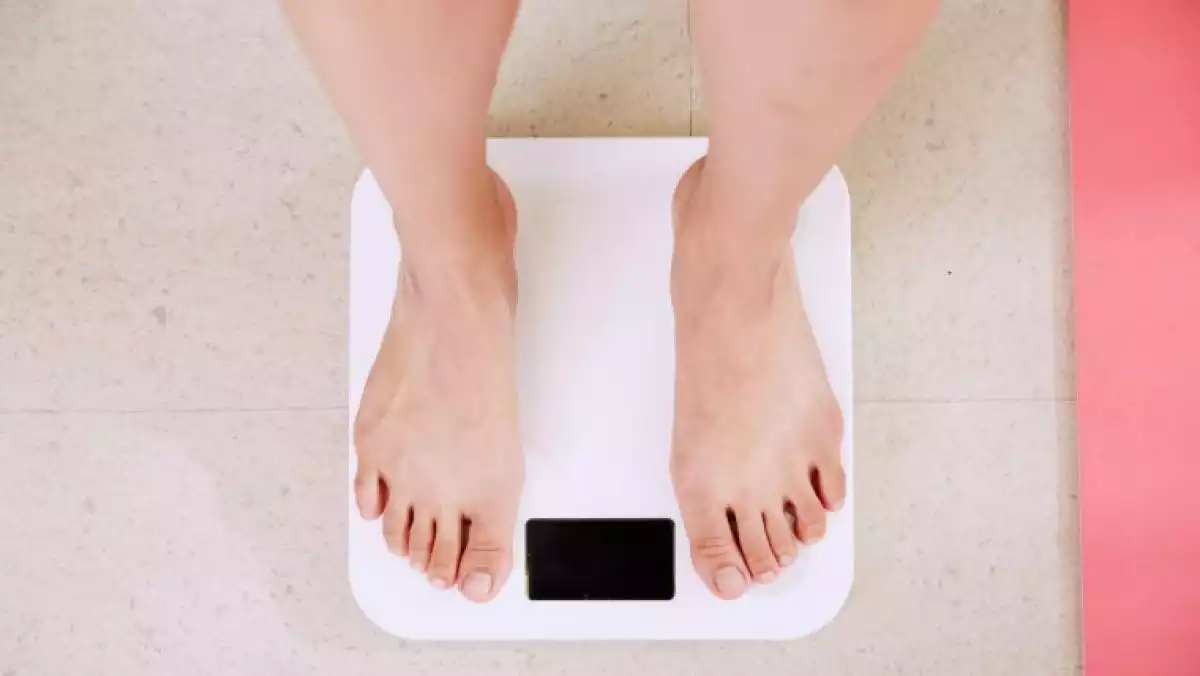
Among all the methods to lose weight, intermittent fasting is one of the most curious ones and the one that has had the best results. Although some more studies are needed to confirm it, a priori if it's done in a controlled way it can provide benefits, not only for weight loss but also at a healthlevel. However, it also has some contraindications, and it can be dangerous if it's not done right.
Throughout this article, we will revise the meaning of fasting to learn what the intermittent fasting is and we will explain the main benefits and results related to this diet up to now, as well as a specific plan to learn how you do it.What is intermittent fasting?
Intermittent fasting (IF) is described as a general period in which regular cycles of fasting and eating are carried out.
It isn't considered a diet itself, but it is usually used together with the caloric restriction to lose weight.
It is also used as a recommended nutritional model for specific health problems, such as diabetes, and it is known as therapeutic fasting.
To understand the meaning of intermittent fasting first, we need to know what is the definition of fasting, which is the voluntary and conscious postponement of food intake. In contrast, starvation is the involuntary lack of food, unintentional and uncontrolled.
According to the evolutionary foundations, human beings have always had to live since prehistory between cycles of abundance and scarcity of food, in relation to the availability of food that existed.
Types of fasting
Intermittent fasting combinations and types are very varied and different. They are mainly defined by the time and frequency of this procedure.
The best known is intermittent fasting 16/8 and consists of fasting cycles of about 16 hours, followed by periods of food intake for 8 hours.
This one, together with the 12/12 is considered one of short frequency and duration. They can be done several days a week.
Finally, 24-hour and 48-hour fasts are based on fasting for 24, and 48 hours once a week or month, respectively.
However, the latter two types are not recommended, let alone performed frequently. They can cause long-term side effects on the body.

Relation to autophagy
No, autophagy is not the fact of eating oneself. It is a biological process by which the lysosomes, some organelles present in our cells, are in charge of recycling the cellular "garbage" that is in them and reconverted in new functional molecules.
This means the cell feeds on its own damaged parts -degraded proteins, dysfunctional mitochondria, bacteria, etc.- to renew itself. This term was coined by Christian Duve in 1974, for which he won the Nobel Prize in Medicine.
It was in 2016 when Yoshinori Ohsumi, a Japanese cell biologist who is specialized in autophagy, delved deeper into his mechanisms and related them to fasting.
It is a process that appears gradually in the body without the need of very prolonged fasts in order to get its potential benefits. Only by lengthening the normative nocturnal fasting of human beings a little longer, you already see additional benefits.
What to eat during intermittent fasting
The type of food in each period of fasting is different. In a diet of short periods of fasting, it is recommended not to exceed 300 calories throughout the day. In those that are longer, it is recommended to reach 700 calories a day to take advantage of the maximum benefits of fasting. These foods and drinks are recommended during fasting cycles: water with lemon, probiotic drinks, vegetable broths or chicken. There are also other substances and foods that can also be included to activate autophagy such as coffee, green tea, ginger, and turmeric.
Benefits of intermittent fasting
There are different benefits for the body when fasting, and they are not only associated with weight loss. Here you have a list of some of the scientifically studied and proven benefits.
1. Prevents neurodegeneration
In some studies carried out in animal models, intermittent fasting proved to increase the resistance to diseases related to the age of the rodents. As well as benefits in the neurologic system.
2. Promotes neurogenesis
This process increases the neurotrophic factors, which are essential for learning and the memory, as well as for the production of new neurons.
3. Positive effects on type II diabetes
It is not true that intermittent fasting can revert type II diabetes. It merely produces an improvement in the body to promote insulin sensitivity, a beneficial effect for people with this type of diabetes.
4. Anti-cancer factor
The autophagy process limits the growth of cancer cells and activates a protein known as AMPK, in charge of activating saving mechanisms in the body. However, their relationship is very complex, and there is no proven causal association.
5. Intermittent fasting for weight loss
Intermittent fasting helps to lose weight, as well as LDL cholesterol, and triglyceride levels. It can also promote fat loss and in a better way than hypocaloric diets.
In some researches with obese adults, effectiveness for weight loss and even muscular mass increase is observed. However, on a prolonged basis, it can lead to muscle loss.

Intermittent fasting 16/8
Also known as Leangains Method, created in 2006 by the Swedish personal trainer Martin Berkhan. His book is available on Amazon. The basic premises on which it is based are:
- Skip the first meal of the day
- Eat less before exercising than after
- Be consistent with the eating times
- Have dinner 2 hours before going to bed or around 9 pm
As we have mentioned before, it consists of fasting for 16 hours followed by cycles of food intake for 8 hours. It is not recommended to do it more than 3 or 4 times a week.
For instance, if the first meal is at 1 pm, the intake will be made between 1 pm and 9 pm. The next intake will take place at 1 pm the next day.
The primary objective of this method is to increase muscle mass and strength without accumulating fat, which in turn makes you lose weight.
To be able to get used to this, the experts recommend reducing the number of meals to 3: breakfast, lunch, and dinner.
Later, when you start with this method, you can reduce calories during breakfast until you can stop having some without starving. If you want more information on this protocol, have a look at this video:
Does intermittent fastig work?
Although it has been proven that fasting periods are part of our DNA and we are totally ready, the excess of fasting is potentially dangerous.
When fasting, we free a protein known as mTOR, which is related to growth. The excess of this substance in our body is very dangerous, as well as the lack of it.
Cases have also been reported in research in women who, because of this procedure, have worse glucose regulations. In the same way, impacts on the menstrual cycle have also been seen due to prolonged restrictions in women with low body fat.
This is why we recommend reading this article as a general review and as any other technique, to be done by a professional with its correct follow-up to avoid future problems.
To finish, it is important to highlight that the therapeutic fasting is contraindicated for:
Pregnant women
Skinny people
Children
Hypercholesterolemic people
In people with hypercholesterolemia negative results have been seen in relation to intermittent fasting.
It was proven that the food restriction caused by this procedure in hypercholesterolemic mice produced diabetes and arteriosclerosis. Those who did not have this pathology -controls- simply lost fat and lowered their cholesterol levels.
- Original article in viviendolasalud.com: Ayuno intermitente: qué es, cómo hacerlo y beneficios probados
References
Anson, R. M., Guo, Z., de Cabo, R., Iyun, T., Rios, M., Hagepanos, A., ... & Mattson, M. P. (2003). Intermittent fasting dissociates beneficial effects of dietary restriction on glucose metabolism and neuronal resistance to injury from calorie intake. Proceedings of the National Academy of Sciences, 100(10), 6216-6220.
Barnosky, A. R., Hoddy, K. K., Unterman, T. G., & Varady, K. A. (2014). Intermittent fasting vs daily calorie restriction for type 2 diabetes prevention: a review of human findings. Translational Research, 164(4), 302-311.
Martin, B., Mattson, M. P., & Maudsley, S. (2006). Caloric restriction and intermittent fasting: two potential diets for successful brain aging. Ageing research reviews, 5(3), 332-353.
Mattson, M. P., Longo, V. D., & Harvie, M. (2017). Impact of intermittent fasting on health and disease processes. Ageing research reviews, 39, 46-58.
Mattson, M. P., & Wan, R. (2005). Beneficial effects of intermittent fasting and caloric restriction on the cardiovascular and cerebrovascular systems. The Journal of nutritional biochemistry, 16(3), 129-137.
